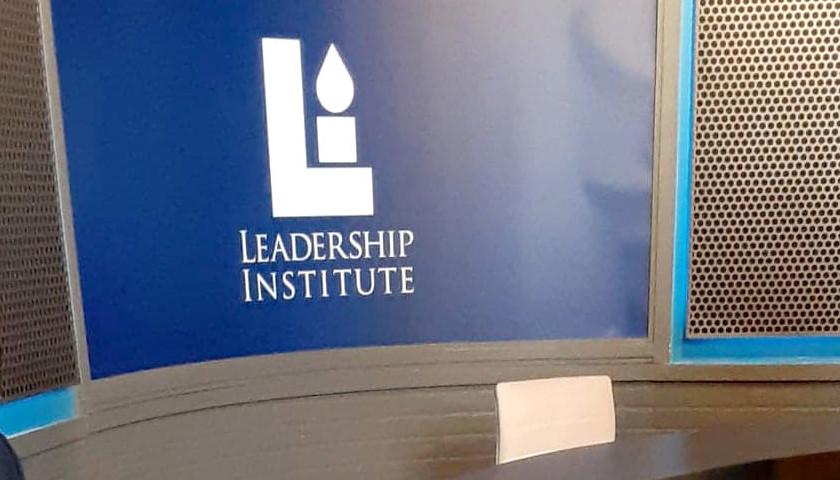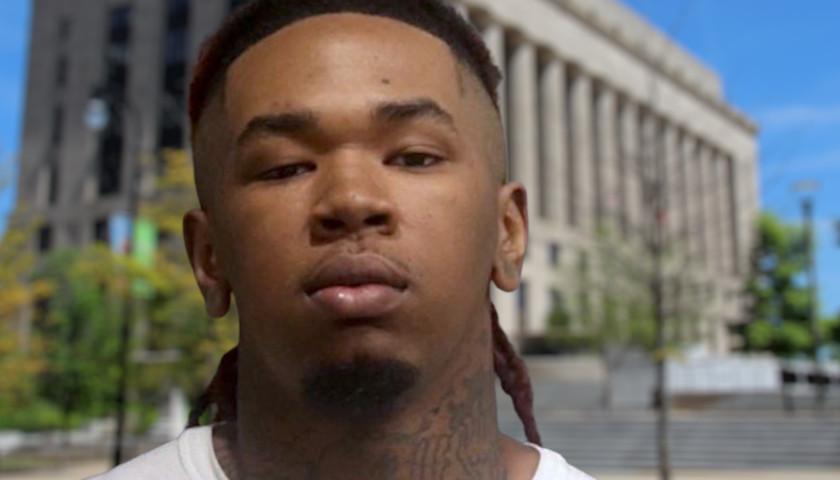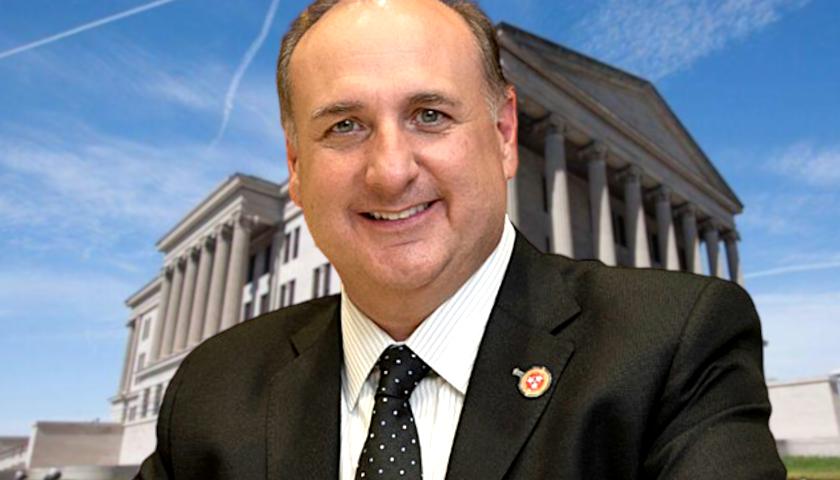On Tuesday’s Tennessee Star Report with Steve Gill and Michael Patrick Leahy – broadcast on Nashville’s Talk Radio 98.3 and 1510 WLAC weekdays from 5:00 am to 8:00 am – Gill chatted with Governor Phil Bryant of Mississippi who was in town for the National Conference of State Legislators in Nashville today to talk about his commitment to criminal justice reform.
Throughout the segment, Bryant described who would qualify for early release which would allow for space in prisons and jails for real criminals convicted of violent crimes. Gill noted that some laws pertaining to marijuana in the ’80s and ’90s are completely irrelevant now as states have legalized the drug.
Gill: Hey, today is election day in Mississippi! The primary elections taking place in Mississippi today and here to help us sort that out as well as talk about his presence in Nashville as part of the National Conference of State Legislators. He’s going to be doing a panel with Van Jones later today talking about criminal justice reform. Governor Phil Bryant of Mississippi on the newsmaker line with us today. Governor good to have you with us.
Bryant: Good morning Steve. Glad to be here with you.
Gill: Typically I’m talking with you when I fill in for Super Talk Mississippi. But glad to have you in our neighborhood today.
Bryant: Well look, it’s a beautiful city. We had a wonderful night last night meeting some of these state legislators. I think there are some 5000 maybe more of them here today. It’s a great turn out all over the country and we’re excited about being here. And you’re right, Van and I are going to talk a little bit about criminal justice reform this morning. Something that I’ve been a part of most of my life as a former law enforcement officer. So, we’re glad to be here and hopefully, keep this movement going all across the nation.
Gill: Governor, there’s always been friction between the law enforcement officials, the prosecutors. Man, they want to nail these guys. They want to put them in jail. They want to get felony convictions. And then on the other side, you’ve got those going, “Look, should we really be putting somebody in a felony situation for the rest of their life because they bought enough marijuana or other drugs to sell to their friends so that they could pay for their own for free.”
How do you find that balance between showing some understanding, some compassion that we all do stupid stuff when we’re 21. Should it follow us when it’s a non-violent crime for 70 years? And prosecutors who justifiably want to enforce the law?
Bryant: Sure. And that’s exactly what you tell them. Look I’m a former law enforcement officer. I put a lot of people in jail. Back in the 1970s, I was a Deputy Sheriff. Went into investigation. Went to DEA training. So our job was then to find these guys that were smoking marijuana. Using drugs. Go arrest them and see if they’re going to be a dealer. So if they’re transporting drugs or if they’re trafficking drugs we put them away.
Look, those are not the guys that we’re dealing with. The guys that are felons who the DA is really worried about committing a violent crime against someone. What we’re trying to say is that we need more room in our prisons. More room in our jails to keep those guys. We don’t want those guys to ever get out that are violent offenders. If you committed murder or an assault or rape, this is not for you.
You’re absolutely right. We’ve got to find that middle ground where those young folks are making a terrible mistake. And a lot of us did stupid things when we were in our 20’s. And so they did stupid things by using drugs that were illegal back in the 1970s where a small amount of marijuana could get you a couple of years in prison. So now we are looking at, is that what we wanted to do?
In the 1990’s I was the guy standing up saying they got to do 85%. Let’s lock them up and throw away the key. So we put a lot of people in jail that maybe got 10 years or 15 years for a drug-related offense or other non-violent crimes and they were there for a decade. 85% percent of that decade. And a lot of them came out as real criminals. They had no way for them to reenter society.
We said we’re going to take your drivers license away from them. We’re going to take away any professional license that you had, so if you were a welder, a plumber, or an electrician, you can’t do that anymore. We’re going to say you’ve got to pay your fines. If you went in and said, “I’ve got 85% of ten years to do because I was holding a bag of marijuana and also I’ve got a $5,000.00 fine.” And you can’t get out of jail until you pay your fine.
We just did a terrible job throughout the 1980s and 1990s of saying we’ere going to use a correctional facility where a lot of people have emotional and mental issues where they’re trapped in the cycle of addiction. We put them in with a very violent population and said, “Good luck with all of that.” And it just doesn’t work.
Those of us that are conservative Republican’s want government to work if we’re going to pay for it. So our hard-earned tax dollars going there. So we have said there is a better way to do it. We found it across the country. We found it in Mississippi starting in 2014. It’s working. And the rest of the nation is following.
Gill: Well and as you’ve pointed out Governor. Our prisons are overcrowded with these nonviolent offenders and therefor we’re letting folks that are really a danger to us get released out on the streets. We need to make more room in the prisons for those that we really need to keep away from our citizens and maybe find a way to let some of these nonviolent offenders out so we can make room for the bad guys.
Bryant: That’s exactly right. And look, I’m the hardest, old, anti-violent offender you will see. I had an aunt back in the 1980s that was kidnapped and raped and murdered. Her body thrown in a ditch. So I’ve been in that courtroom. Not only have I prosecuted murders, but I have a family member where you see the photographs of their mother being passed to the jury. Of their mother’s body. Three small children that she left her.
It is agonizing. Those are the guys that can’t get out of jail. That’s where we need to be making our investments, to keep those murderers and rapists and those folks that commit those real hard crimes in jail. That’s what we did in Mississippi started with. What is a felony? To tell you the truth, We said house burglary is a felony. If you’re going to come in my home, break in my home, I may be there, you may threaten my wife, so we’re not going to look at home burglars that fell by the way and let you out early.
But what we are going to do is look at those people that made a mistake when they were young. Perhaps had possession of drugs or paraphernalia. I remember arresting people for the position of paraphernalia that now they sell in convenience stores. It was a different world in those days and it was very tough in the 1980s and also the 1990s.
Gill: Especially if you’ve got a guy sitting in jail, sitting in prison in a state where they’ve not legalized marijuana that he’s in jail for having. Again, as the law changes. It is interesting Governor that this is an issue that does seem to bring right and left, black and white, suburban and rural and urban all together. This criminal justice reform issue is one that does bring people together.
Bryant: It does. And that’s what happened when I passed this in 2014 we’d begin to see these very conservative organizations come forward and say, “We don’t believe this is a good investment of tax dollars. Oh by the way, if we’re not careful, everything’s going to be against the law.” If you walk out and have a disturbance with your neighbor and maybe you shout at him, they may call and come and arrest you. There are so many things now you can be arrested for.
Gill: Some are laws where it’s illegal to do this and it’s illegal to not do that. I mean they’re inconsistent. Hey in the time we have remaining, I know you’ve got to run. Today is primary election day in Mississippi. You’ve endorsed Tate Reeves to follow you. You’re term-limited. How do you think things play out in Mississippi today?
Bryant: I think he’s going to win this race. I think it’s going to be close. I think he’s got two very good competitors in the Republican primary. That’s fine. When I went for Governor eight years ago I had five Republicans and they were all running against me. I was the Lieutenant Governor and perceived front runner for that time.
So it’s going to be a tough race. No one’s worked harder than Tate Reeves. People want to know why did you endorse Tate so early. He’s my Lieutenant Governor. Lieutenant Governors and Governors have a very unique relationship. You’ve got to work together every day. You’ve got to face the big problems that come along. Whether it’s hurricane storm or a budget.
Gill: And ideologically he’s consistent with you. Last quick question Governor. You’re term-limited. Some talk that you might join the Trump Administration in some capacity. There are regular openings. (Bryant chuckles) What’s next for you?
Bryant: You know I’m going to finish. But Steve I want to concentrate on what I’m doing. I’ve seen other governors take their eye off the ball. Decide they were going to do something else and they make the mistake those last few months. They forget about something very important to their people. So my job is to be Governor. We’ll see what come in January of 2020.
Listen to the full hour:
– – –
Tune in weekdays from 5:00 – 8:00 am to the Tennessee Star Report with Steve Gill and Michael Patrick Leahy. Listen online at iHeart Radio.
Photo “Phil Bryant” by Phil Bryant.








